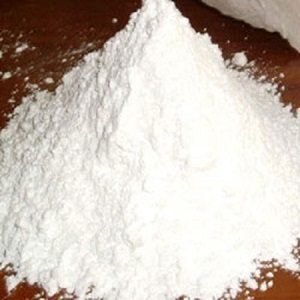Distinct Advantages of Soapstone Powder
Introduction
Soapstone powder, also known as talc, is a widely used metamorphic mineral found in various parts of the world. It has many desirable qualities such as softness and resistance to heat and electricity, allowing it to be used in various industries ranging from the pharmaceuticals, paper, and plastics industries to beauty care. Additionally, its use in detergent powder and other allied minerals has become increasingly beneficial in the current era. This article will explore the multiple benefits that soapstone or talc can offer to various industries across the world.
Utilization of Soapstone Powder in Detergent Powder
Soapstone powder has become an increasingly essential ingredient in the manufacture of detergent powder, as it enables many significant operational benefits for both producers and consumers alike. The main advantages of soapstone powder in detergent powder are its ability to improve product quality, reduce production costs, and increase bulk additions.
a. Detergent Quality
A key benefit of soapstone powder's inclusion in detergent powder is its ability to improve the quality of the detergent. Its qualities of heat, electricity, and luster make it an ideal product for providing higher quality cleaning power, which significantly reduces the time required for cleaning. This leads to lesser strain on fabrics and better results in less time.
b. Reducing Cost
Another advantage of soapstone powder in detergent powder is that it helps to significantly reduce production costs. By making a few modifications to the production process, producers can cut costs while maintaining micro-powder consistency and quality. This ensures that the detergent powder is both cost-effective and of high quality.
c. Bulk Additive
Lastly, soapstone powder is also used as a bulk additive in the detergent powder. It not only helps disperse foreign material in the water, but it also helps to increase the bulkiness of the powder. This increases its usage, meaning more value for money for customers, and more profit for producers.
Applications of Soapstone Powder in Allied Minerals
Soapstone powder has many applications, offering greater production efficiency and improved safety in various industries. Notable applications of soapstone powder or talc include insulation and fireproofing, rubber and textile industry, pottery and porcelain, as well as construction and plastics.
a. Insulation and Fireproofing
The use of soapstone powder in the insulation and fireproofing industry has far-reaching benefits. By adding soapstone powder into products such as mortar, asbestos, and plaster, it helps to insulate and fireproof buildings and structures both cost-efficiently and effectively. It also helps to increase the safety of employees and customers by providing additional protection against fire hazards.
b. Rubber and Textile Industry
The rubber and textile industry relies heavily on soapstone powder, due to its many uses in the production of rubber products, such as tires and seals. Additionally, it is used in the textile industry as a filler and to increase strength, reducing production costs by enhancing production efficiency while maintaining quality.
c. Pottery and Porcelain
Allied Minerla, In pottery and porcelain, soapstone powder is used as a filler material and glaze, improving the appearance and usability of various ceramic or pottery products. The powder also helps in strengthening materials and improving the elasticity of clay, while reducing cracking during firing.
d. Construction and Plastics
Soapstone powder is also widely used in the construction and plastics industry as a filler material and as a coating to reduce frictional losses. It helps to improve the strength and longevity of constructions, making them more durable and cost-effective. Additionally, it is also used as a pigment in different types of plastics, providing a better look and feel to the products.



Comments
Post a Comment